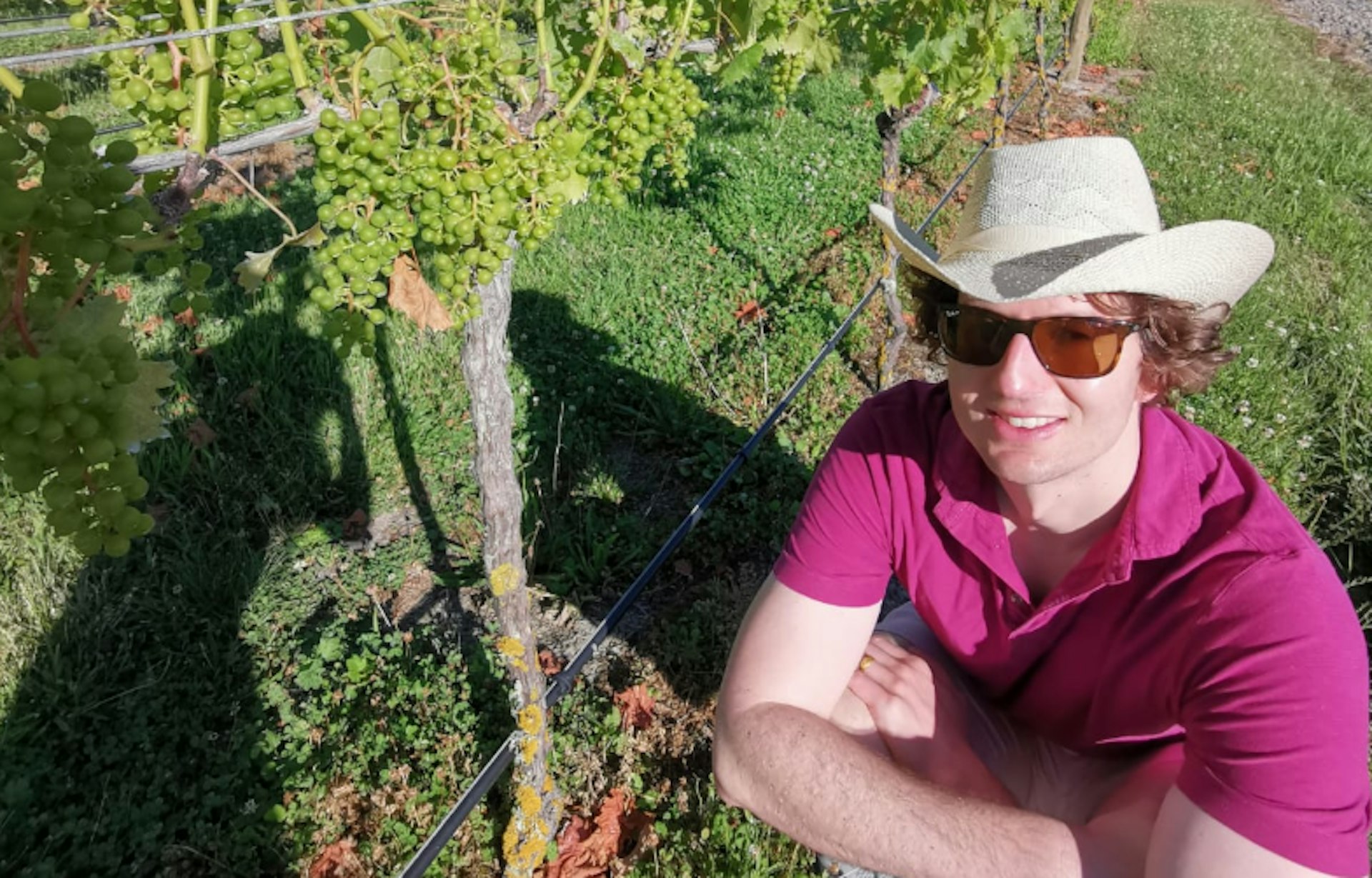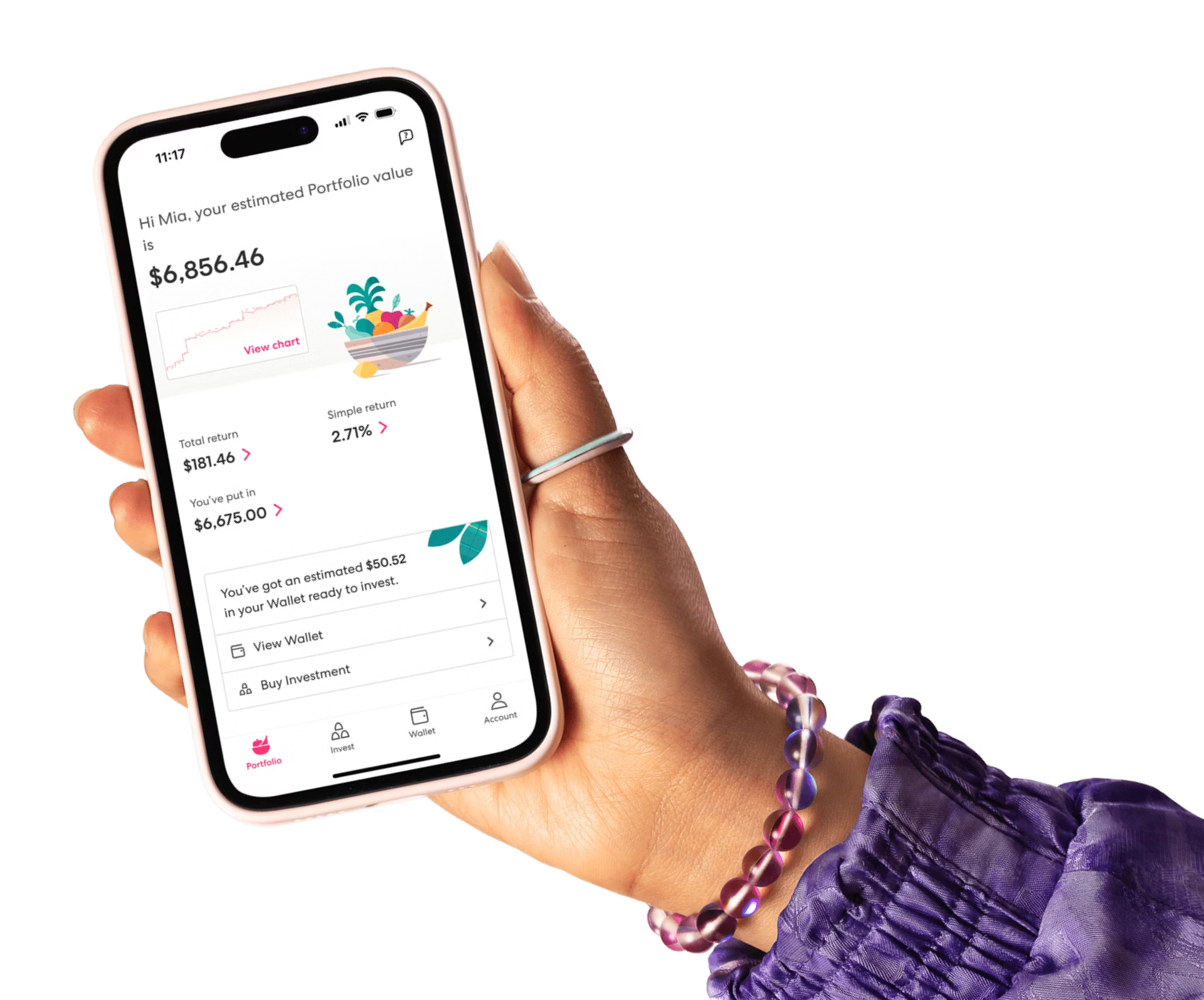Investor Journeys—Simon
We spoke with Simon—a thirty-something-year-old software engineer and investor from Wellington. We asked him about how he started investing, and how he’s built up his investing knowledge over time.

Why did you start investing?
I had an interest in business and commerce from a young age. At one point, I came up with an imaginary business called Sim & Tom, and even created a logo which I’d scribble on all my textbooks. This business was going to compete with Farmers—it would have been similar to The Warehouse. But I never met a business partner named Tom.
After university, my friend and I seized an opportunity to create an online ordering system for an on-site catering company. This was to replace their existing paper and fax-based system. They loved the system and it launched with much fanfare, so we decided to do more online systems. Although it was great to have a business on the side, it required many hours, and there was never any certainty of future income. My friend ended up taking full-time employment in the city, and I went on an overseas experience.
Can you tell us about your first investment?
The first investments I had was in managed funds from Fisher Funds, in their NZ Growth Fund. At that time, Fisher Funds was a lot smaller and achieved impressive returns. During the global financial crisis (GFC), the fund took a major hit. My dad could see a market crash coming and sold off his Fisher Funds, but intentionally didn’t tell me or my sister. He wanted us to learn the hard way while we only had peanuts in the market. This was an invaluable life lesson.
My first direct investment into the sharemarket was buying shares in Kidicorp. This had to be done by calling a broker—putting a request in, transferring the money, and then waiting for the trade to happen. I didn’t understand the process and it was difficult to get information. Thank goodness for online brokerage—it’s made this process faster and cheaper.
What I also learned from this is to start early and small. You need to make mistakes with small amounts of money so you don’t make those mistakes with larger amounts. Time will provide you with this. There’s no need to get carried away in the beginning of your investment journey.
What would you do differently, if anything?
I would’ve joined KiwiSaver earlier to take advantage of the member contribution from the Government.
What do you like about having an investment?
I like receiving dividends and observing the trend of share prices. You learn a lot when you start investing and have skin in the game. There’s a lot of jargon thrown around, and it's useful to learn what some of it means. One of the great things about investing is you can own a share of a business and its profits—all without being the one doing the heavy lifting.
How did you feel after becoming an ‘investor’ for the first time?
I thought of it like a gamble, because investing in shares seemed scary. You’re essentially handing over your hard earned cash to someone else, hoping it won’t disappear overnight. It takes a while to be comfortable with the rise and falls of the market and to gain confidence that you won’t lose all your money. But in order to do this, I recommend starting small and gradually adding to your portfolio. Sharesies is an excellent place to start because you can invest small amounts, and the diversity of exchange-traded funds (ETFs) reduces your risk.
How have you made investing a habit?
I’m a set-and-forget investor, as I don’t have much cash to invest. Most of my dividends are automatically reinvested and I only review my portfolio once or twice a year.
You’re a part of the NZ Shareholders’ Association. What does the Shareholders’ Association do and why did you join?
I joined the NZ Shareholders’ Association because I wanted to be surrounded by people who knew more than I do. I like what the association represents—being a voice to independent investors and shareholders in New Zealand. Each meeting we have a speaker, the topic of which is normally interesting and worthwhile. I have also attended their ‘Introduction to Investing’ course which is excellent.
People often think you need loads of money to invest. What tips would you give to everyday New Zealanders who might not think it’s possible?
At a minimum, make sure you’re in KiwiSaver.
After that, see if you can invest 5% of your income. More importantly, the sooner you start, the better. You can invest in ETFs to get started—which Sharesies can help with.
Don’t put all your money in your mortgage—invest a little on the side.
What is the best piece of advice you’ve given (or been given) about investing?
Invest in what you know, and in places that are making money today, rather than promising a potential return in the future. To me, this means avoiding cryptocurrencies, precious metals and foreign exchange. Only people who work in currency markets profit from it. Don’t be fooled by the sexy marketing. You need your investments to hold their value over the long-term. Otherwise they’ll be worthless.
Another thing to be careful of is the truckloads of misinformation out there. There are often articles from fund managers who are trying to win your business by making you feel too scared or incompetent to manage your money. Also, read the Barefoot Investor by Australian Scott Pape—and never look back!
The people shown in our Investor Journeys are Sharesies investors, and their stories are actual experiences they’ve had with us. They’re paid for their time to record their story.
Ok, now for the legal bit
Investing involves risk. You aren’t guaranteed to make money, and you might lose the money you start with. We don’t provide personalised advice or recommendations. Any information we provide is general only and current at the time written. You should consider seeking independent legal, financial, taxation or other advice when considering whether an investment is appropriate for your objectives, financial situation or needs.
Join over 800,000 investors



